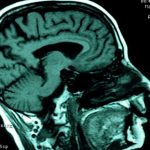
The explosive rise in use of alcohol-based hand sanitizers during the COVID-19 pandemic has had a dangerous, unintended consequence: eye injuries among children. Using data from French poison control and a children’s hospital in Paris, researchers reported that accidental eye injuries to kids under age 18 shot up sevenfold during a five-month period last year, compared to 2019. Eye injury due to hand sanitizer exposure “is a known complication,” said Dr. Sonal Tuli, a clinical spokeswoman for the American Academy of Ophthalmology (AAO) who reviewed the study findings. “This is a concern not just for children but also adults and health care workers,” Tuli said. “To my knowledge, there have been no recent similar studies in the U.S., but I suspect there are similar injuries occurring here, too.” The new study was published online Jan. 21 in JAMA Ophthalmology. Hand sanitizers consist mainly of ethanol or isopropyl alcohol (60% to 95%), which are toxic to delicate structures like eyes, noted Dr. Sonam Yangzes, a consultant in the division of lens, cornea and refractive services for the Grewal Eye Institute in Chandigarh, India. As such, exposure to sanitizers “may lead to blindness, due to development of corneal ulcer or melt,” said Yangzes, who co-wrote an editorial that accompanied the study. Increased use of the products during the COVID-19 pandemic has made “children more vulnerable to eye… read on > read on >
















